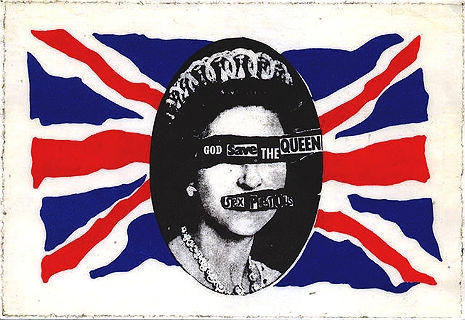
If you want an idea just how seriously certain sections of the British Establishment feared Punk Rock then take a look at this incredible piece of archival television from 1977. It’s an edition of the BBC’s Brass Tacks—a current affairs series in which reporter Brian Trueman (perhaps better known now for those classic kids’ TV shows Chorlton and the Wheelies and Danger Mouse) introduced a brief film on Punk and then hosted a live studio debate between some of the youngsters featured in the piece—along with Buzzcocks’ Pete Shelley and Radio One DJ John Peel—arguing the toss with a selection of crusty town councillors, from London, Birmingham, Newcastle and Glasgow. These respectable citizens were out to ban Punk from various inner city venues. Add to this incendiary mix some comment from the press and a Pastor John Cooper, who wanted everyone to come to Jesus.
Okay, this all may sound like the comic ingredients to some grand mockumentary but these fears over the political aspect of Punk Rock and the potential for anarchy on the streets of Britain were very real at the time. As Brian Trueman says in his introduction:
“Punk Rock is more feared than Russian Communism.”
Why? What were these people thinking? What were they really scared of?
Well, to start at the beginning…
Britain in the 1970s was in a mess. It had high unemployment; three-day working weeks; nationwide power cuts that left everyone in the dark; taxation at astronomic levels; food shortages; endless strikes; and a crumbling infrastructure. All of this meant the Labour government feared a revolution was imminent.
To explain why this all came about let’s rewind the tape to a mass demonstration at Grosvenor Square, London, March 1968. This was where an anti-Vietnam War rally erupted into a pitched battle between protesters and police. Outside of the American Embassy 200 people were arrested; 86 were injured; 50 were taken to hospital, half of which were police officers. The Labour government were stunned that a group of protestors could cause such anarchy and disorder,—which (they believed) could have led to a mini-revolution on the streets of London.
In fear of revolution or such anarchy ever happening again, the government decided to take action. At first, ministers considered sending troops out into the streets. But after some reassuring words from Special Branch Chief Inspector Conrad Hepworth Dixon, they were convinced that the boys in blue could handle any civic disorder. Dixon was allowed to set up a new police force: the Special Demonstration Squad.
This was no ordinary police operation, the SDS had permission to be (quite literally) a law unto itself. Its officers could operate under deep cover. Infiltrate left-wing, fringe organizations and youth groups with the sole purpose of working as spies and agents provocateurs. Harold Wilson’s government agreed to pay for this operation directly out of Treasury funds.
The SDS carried on its undercover activities against any organization that they believed threatened Britain’s social order. This included unions, animal rights, anti-Nazi and anti-racist groups.
If that wasn’t worrying enough, the SDS were allegedly involved in the planting incendiary devices at branches of department store Debenhams in Luton, Harrow and Romford in 1987. It is also alleged, one member of the SDS was so deep undercover he was involved in writing the pamphlet that led to the famous “McLibel” trial of the 1990s.
The workings of the SDS were on a “need to know basis.” Only a handful of police knew exactly what this little club were up to. But their activities fuelled genuine fears amongst the British Establishment that there were “Reds under the beds,” and revolution was a literal stone’s throw away.
This was all going on behind-the-scenes. Out front, muppets like the councillors and journalists lined-up on this program, pushed the hysteria of Punk Rock riots and civil disobedience, that reflected the very genuine fears at the heart of the UK Establishment. (Note London councillor Bernard Brook-Partridge mention of “MI5 blacklists.”)
So, that’s the background to this fascinating archive of the year that politicians (and even the BBC) thought Punk Rock was a torch-bearer for bloody revolution.